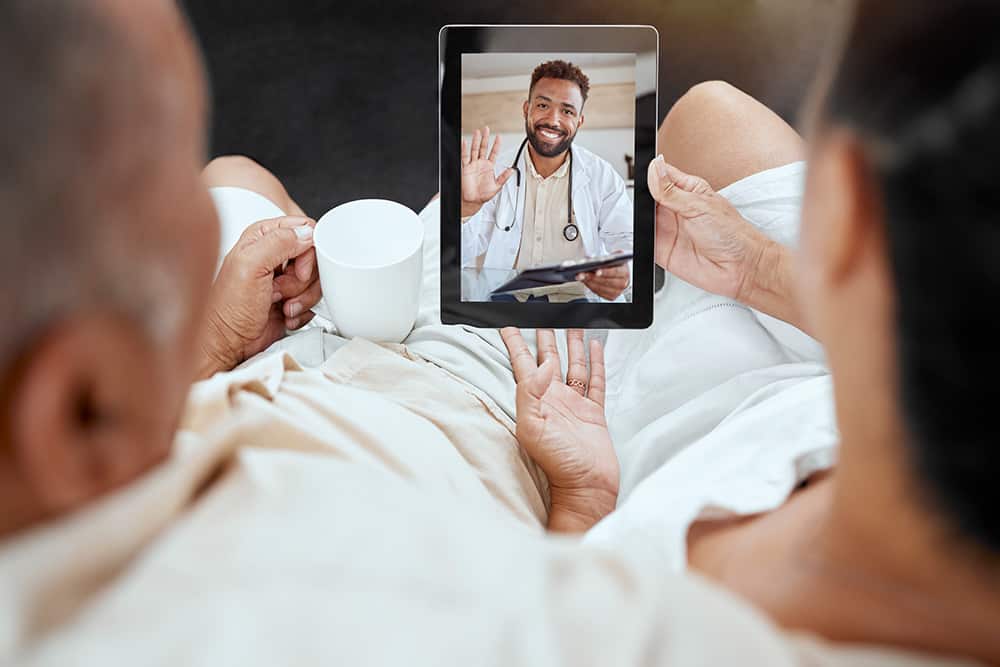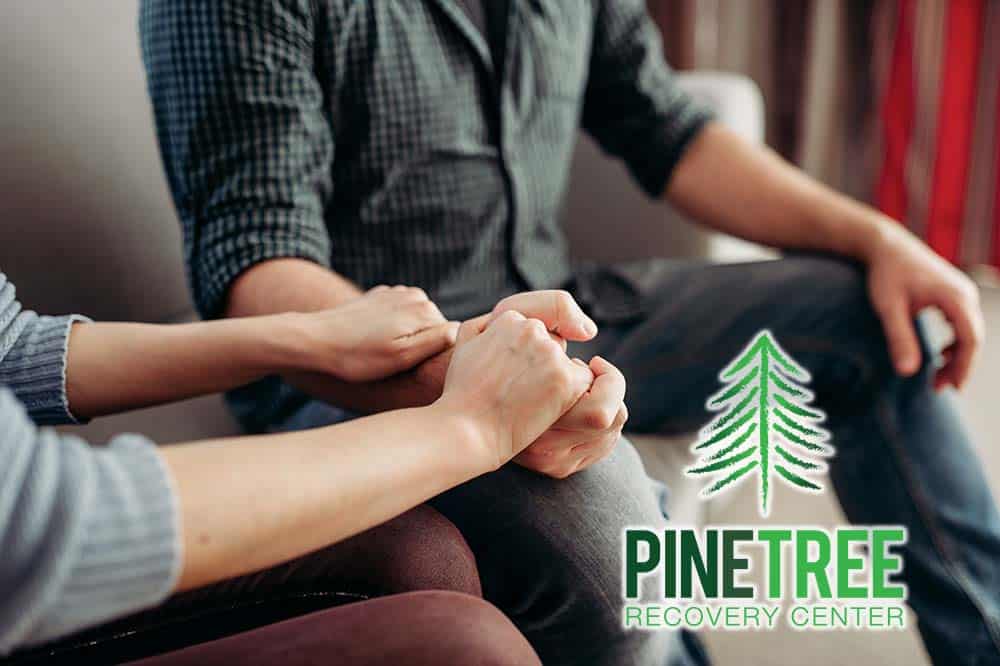Virtual and telehealth options have become increasingly popular in addiction treatment, particularly in response to the COVID-19 pandemic. These options offer individuals convenient and accessible ways to receive support and treatment for addiction in their local area.
One option is teletherapy, where individuals can connect with a licensed therapist remotely through video or phone calls. This is particularly beneficial for those who cannot attend in-person therapy sessions due to location or mobility issues.
Another option is virtual support groups, such as Alcoholics Anonymous (AA) and Narcotics Anonymous (NA), which have moved online meetings. These meetings can be accessed through Zoom or Skype, allowing individuals to connect with others who are going through similar experiences.
Online treatment programs, including individual counseling, group therapy, and educational resources, may help individuals recover. Overall, virtual and telehealth options can provide individuals with flexible and convenient ways to receive addiction treatment and support in their local community.
If you or someone you love has a substance use disorder, Pine Tree Recovery is available to help. We are dedicated to providing the most comprehensive and individualized medically monitored detox program. To learn more about our programs, contact us today.
Virtual & Telehealth Options Are Innovative Approaches to Local Addiction Treatment
Virtual and telehealth options are innovative approaches to local addiction treatment that have recently gained popularity. These options allow individuals to receive addiction treatment and support remotely without traveling to a physical location.
A 2019 Association of American Medical Colleges report states that over 21 million Americans struggle with substance use disorders. Shockingly, only 11 percent of these individuals have sought professional treatment. The 2018 National Survey of Substance Abuse Treatment Services revealed that one in five people with addiction do not know where to turn for help. The American Psychiatric Association also found that 20 percent of those who did not seek help cited lack of time as the primary reason.
Individuals with substance use disorders must receive professional treatment to achieve sobriety. Pine Tree Recovery is dedicated to helping individuals access treatment for long-term recovery. Traditional treatment methods may not work for everyone.
The Rise of Telehealth in Addiction Treatment
The rise of telehealth in addiction treatment has significantly developed in recent years. Telehealth involves using technology to deliver healthcare services remotely, including addiction treatment. This approach has become increasingly popular due to its convenience, accessibility, and effectiveness.
Telehealth options for addiction treatment include teletherapy, virtual support groups, and online treatment programs. Teletherapy involves connecting with a licensed therapist remotely through video or phone calls, allowing individuals to receive counseling and support from the comfort of their own homes. Virtual support groups, such as Alcoholics Anonymous (AA) and Narcotics Anonymous (NA), have moved their meetings online, making it easier for individuals to connect with others who are going through similar experiences.
Online treatment programs can include individual counseling, group therapy, and educational resources, which can be accessed from anywhere, making them a convenient option for individuals who may not have access to addiction treatment in their local area.
The rise of telehealth in addiction treatment has been accelerated by the COVID-19 pandemic, which has made in-person treatment more difficult to access. However, even before the pandemic, telehealth was gaining popularity as an effective and convenient option for addiction treatment. It has the potential to reach a wider audience and support individuals who may not have otherwise been able to receive addiction treatment.
Overall, the rise of telehealth in addiction treatment is a positive development that offers individuals greater accessibility and flexibility in receiving treatment and support for addiction. It has the potential to revolutionize addiction treatment and make it more accessible and effective for those who need it most.
Benefits of Virtual Addiction Treatment
Virtual addiction treatment offers numerous benefits for individuals struggling with substance use disorders. Here are some of the key benefits of virtual addiction treatment:
- Accessibility – Virtual addiction treatment can be accessed from anywhere with an internet connection, making it a convenient option for individuals who live in remote areas or have difficulty traveling to in-person treatment centers.
- Convenience – Virtual addiction treatment can be done from the comfort of your home, eliminating the need to commute to treatment centers or take time off work.
- Increased Privacy – For individuals who may be hesitant to attend in-person treatment due to concerns about privacy or stigma, virtual addiction treatment offers a more discreet option.
- Cost-Effective – Virtual addiction treatment can be more cost-effective than in-person treatment, as it eliminates the need for travel and can be done using a computer or smartphone.
- Flexibility – Virtual addiction treatment allows for greater flexibility in scheduling, making it easier to fit treatment into your daily routine.
- Personalization – Virtual addiction treatment can be tailored to your individual needs, with personalized treatment plans and one-on-one counseling sessions with licensed therapists.
- Improved Outcomes – Studies have shown that virtual addiction treatment can be as effective as in-person treatment in helping individuals achieve and maintain sobriety.
Overall, virtual addiction treatment offers numerous benefits for individuals seeking treatment for substance use disorders. It is a convenient, accessible, and effective option to help individuals overcome addiction and achieve long-term recovery.
We Are Here For You
Challenges & Limitations of Virtual Addiction Treatment
While virtual addiction treatment offers many benefits, it has challenges and limitations. Here are some of the challenges and limitations of virtual addiction treatment:
- Technology Limitations – Access to reliable internet and technological devices is necessary for virtual addiction treatment. Individuals who do not have access to these resources may not be able to participate in virtual treatment.
- Lack of In-Person Support – Virtual addiction treatment lacks the face-to-face interaction that in-person treatment provides, which may be difficult for individuals who benefit from the support of others in a physical setting.
- Limited Access to Resources – Virtual addiction treatment may not provide access to all the resources that in-person treatment offers, such as on-site medical care or group therapy.
- Potential for Distractions – Participating in virtual treatment from home may lead to distractions and interruptions that can affect the effectiveness of treatment.
- Limited Ability to Assess Physical Symptoms – Virtual addiction treatment may not provide the ability to assess physical symptoms, which can be crucial in determining the appropriate treatment plan.
- Limited Efficacy for Some Individuals – While virtual addiction treatment can be effective for many individuals, it may not be the best option for everyone. Some individuals may require more intensive, in-person treatment to overcome their substance use disorders.
While virtual addiction treatment offers many benefits, it has limitations and challenges. It is important to consider individual needs and preferences carefully when choosing a treatment approach for substance use disorders. A combination of virtual and in-person treatment may be the most effective approach for some individuals.
Efficacy of Telehealth & Virtual Addiction Treatment
Numerous studies have demonstrated the efficacy of telehealth and virtual addiction treatment in helping individuals overcome substance use disorders. Here are some key findings:
- Comparable Outcomes – Research has shown that virtual addiction treatment can produce outcomes comparable to in-person treatment. A systematic review of 32 studies found that virtual addiction treatment was as effective as in-person treatment in reducing substance use and improving mental health outcomes.
- Increased Engagement – Virtual addiction treatment may increase engagement in treatment, as it eliminates barriers such as transportation and childcare that can make it difficult for individuals to attend in-person treatment.
- Cost-Effective – Virtual addiction treatment can be a cost-effective alternative to in-person treatment, as it eliminates the need for travel and reduces overhead costs.
- Improved Access – Virtual addiction treatment can improve access to treatment for individuals who live in rural or remote areas or have difficulty traveling to in-person treatment centers.
- Tailored Treatment – Virtual addiction treatment can be tailored to each patient’s needs, with personalized treatment plans and one-on-one counseling sessions with licensed therapists.
- Positive Patient Experiences – Many patients report positive experiences with virtual addiction treatment, citing convenience, comfort, and privacy as key factors.
The evidence suggests that telehealth and virtual addiction treatment can effectively treat substance use disorders. While more research is needed to fully understand virtual treatment’s benefits and limitations, the current evidence supports its use as a valuable treatment option for individuals struggling with addiction.
Our Drug & Alcohol Detox Services Include
Is Virtual & Telehealth Addiction Treatment as Effective as In-Person Treatment?
Research has shown that virtual and telehealth addiction treatment can be as effective as in-person treatment for many individuals. A systematic review of 32 studies published in the Journal of Substance Abuse Treatment found that virtual addiction treatment was as effective as in-person treatment in reducing substance use and improving mental health outcomes.
Another study published in the Journal of Addiction Medicine compared virtual addiction treatment with in-person treatment for opioid use disorder and found that both treatment methods resulted in similar rates of opioid abstinence.
However, the effectiveness of virtual addiction treatment may vary depending on the individual and their specific needs. Some individuals may require more intensive, in-person treatment, while others may benefit from the flexibility and convenience of virtual treatment.
Virtual addiction treatment may not be appropriate for everyone, such as individuals with severe mental health or medical issues that require in-person care.
Ready To Begin Your Drug & Alcohol Detox?
We Offer A Safe & Effective Program
Don’t let Drug & Alcohol addiction control your life.
Call us today and let’s get you started on the path to a better you.
Virtual Recovery Support Groups as Alternatives to In-Person 12-Step Meetings
Virtual recovery support groups can serve as effective alternatives to in-person 12-step meetings for individuals in recovery from addiction. Here are some potential benefits of virtual support groups:
- Increased Accessibility – Virtual support groups can be accessed from anywhere, which can be particularly helpful for individuals who live in remote areas or have limited mobility.
- Greater Flexibility – Virtual support groups often offer more flexibility in meeting times, making it easier for individuals to attend meetings around their schedules.
- Anonymity and Privacy – Virtual support groups can provide greater anonymity and privacy, which can be especially important for individuals not comfortable attending in-person meetings or wanting to maintain anonymity.
- Variety of Options – Many different virtual support groups are available, providing individuals with various options.
- Community Support – Virtual support groups offer the same sense of community and support as in-person meetings, which can be essential for individuals in recovery.
- No Travel Required – Virtual support groups can eliminate the need for travel, saving time and money.
Online Support Tools for Addiction Treatment
Many online support tools are available for addiction treatment, which can provide individuals with additional resources and support in their recovery journey. Here are some examples:
- Online Support Groups – As mentioned earlier, virtual support groups can provide individuals with the same sense of community and support as in-person meetings and are often more accessible and flexible.
- Teletherapy – Online therapy or teletherapy allows individuals to connect with licensed therapists or counselors via videoconferencing, which can be a convenient option for those unable to attend in-person therapy sessions.
- Recovery Apps – Many recovery apps offer a range of features, such as tracking sobriety, connecting with support groups, and accessing daily inspiration or meditation exercises.
- Online Recovery Courses – Many organizations offer online courses that provide information and tools for individuals in recovery, such as coping skills, relapse prevention, and mindfulness practices.
- Online Recovery Communities – Many online communities are available for individuals in recovery, which can provide support, resources, and connections to others going through similar experiences.
- Educational Resources: There are many educational resources available online that provide information on addiction and recovery, such as articles, podcasts, and videos.
Legal & Regulatory Considerations of Telehealth in Addiction Treatment
Several legal and regulatory considerations must be taken into account when implementing telehealth in addiction treatment:
- Licensing Requirements – Providers offering telehealth services must be licensed in the state where the patient is located and adhere to state-specific regulations and guidelines for telehealth services.
- Privacy and Security – Telehealth providers must comply with federal and state laws that protect patient privacy and security, such as HIPAA. Providers must use secure video conferencing platforms to protect patient information during transmission and storage.
- Reimbursement Policies – Providers must know the reimbursement policies for telehealth services in their state and with different insurance companies. Some insurance companies may have different requirements for telehealth services compared to in-person services.
- Informed Consent – Providers must obtain informed consent from patients before providing telehealth services and ensure that patients understand the limitations and potential risks of telehealth services.
- Emergency Procedures – Providers must have procedures for patients experiencing a medical emergency or mental health crisis during telehealth sessions.
- Technological considerations: Providers must ensure they have the appropriate technology and equipment for telehealth services and a plan for addressing technical issues or interruptions in service.
Begin Healing Now!
Have A Call With One Of Our Treatment Advisors
Don’t Suffer Any Longer
Contact Us Today to Learn More
Contact us today if you or your loved one is ready to begin an entirely new way of life and commit to long-term recovery. As soon as you call, we start developing a plan of action that begins with an initial pre-assessment. This assessment helps us determine the most appropriate level of care for each unique case. We identify potential coverage options if our medically monitored detox program is a good fit. We work closely with most major regional and national insurance providers. Contact us today for a free, no-obligation insurance benefit check.

Reviewed for accuracy by:
Randi Bruneau
LCSW, LADC, CCS
Randi is a Licensed Clinical Social Worker and Licensed Alcohol and Drug Counselor and Supervisor who has over 20 years of experience in the field of mental health and addictions. She has worked in both clinical and administrative leadership roles and also has extensive career experience in gender specific trauma treatment, crisis intervention, structural family work and substance use disorder treatment and supervision.























